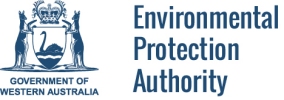The Environmental Protection Authority has released advice and recommendations to the Minister for Environment on the proposal to expand the Port of Albany by the Albany Port Authority.
The proposal involves dredging in Princess Royal Harbour and King George Sound for a shipping channel, berth pocket and turning basin. Dredged material would be used to reclaim land to construct an additional berth adjacent to the port, with excess dredge material placed in deep water within King George Sound. Up to 12 million cubic metres of material would be dredged over a seabed area of approximately 247 hectares.
EPA Chairman Paul Vogel said that the EPA considers that the dredging and disposal would need to be comprehensively monitored and proactively managed to ensure that the Albany Port Authority’s predicted impacts are not exceeded and that the ecological values of Princess Royal Harbour, King George Sound and Oyster Harbour are not compromised.
‘A number of submissions expressed a view that the APA should have selected the outer disposal site as part of the proposal to minimise environmental impacts on King George Sound.
‘However, APA has undertaken the necessary investigations for the EPA to conclude that the proposed inner spoil ground is likely to be stable and not cause sedimentation of marine communities in King George Sound.
‘As the dumping of material offshore requires a sea dumping permit under the Commonwealth Environment Protection (Sea Dumping) Act 1981, conditions will be imposed by the Department of Environment, Water, Heritage and the Arts to require the APA to survey the pre and post-dumping bathymetry of the disposal ground to verify the stability of the disposal ground.
‘The proposal will result in turbid plumes in a large portion of King George Sound and small portions of Princess Royal Harbour and Oyster Harbour during the duration of the dredging campaign.
‘Recreational activities in King George Sound such as swimming, diving and whale watching are likely to be affected by the plumes to varying degrees depending on the timing and location of the dredge, and the prevailing wind and current conditions.
‘The EPA has recommended a condition to prevent dredging of the shipping channel in King George Sound during summer to minimise impacts on seagrass communities.
‘This condition would also serve to minimise impacts on recreational activities in the Sound by avoiding dredging of the channel when it is expected that the recreational usage of King George Sound and Princess Royal Harbour will be at its highest.
‘For the commercial pilchard fishery, APA has committed to work with the Department of Fisheries and fishing industry representatives to monitor the impacts of the proposal and there are still opportunities to identify further measures to reduce impacts during the peak fishing season.
‘Also, a Community Stakeholder Reference Group should be established by the APA. Membership of the group should comprise representatives from commercial dive operators, mussel farm operators, commercial fisheries, the City of Albany and the Department of Water.
‘This group will need to be established prior to the commencement of dredging and be regularly convened during the dredging program with issues to be considered to include the ways in which the dredge schedule, timing and management can be planned to avoid or minimise impacts to the recreational users of King George Sound, dive sites, aquaculture operations and the pilchard fishery’s peak season.
‘Mercury has been identified in sediments along a portion of the proposed shipping channel and there is a risk it may be bio-available during dredging.
‘To reduce this risk, the APA has committed to selectively dredge this portion of the channel without overflow and to place the material in the centre of the offshore spoil ground for burial.
‘However, there is still a small risk that sediments containing mercury will enter the marine environment during dredging.
‘A key issue is the proximity of the dredging to the mussel farms in the vicinity of Mistaken Island and the potential for mercury in sediments to enter the food chain.
‘The EPA has recommended conditions which require the APA to monitor water and sediment quality during and after the dredging program to ensure levels do not exceed concentrations that pose a risk to ecosystem integrity or human health.
‘It is also recommended that monitoring of mussels occur during the dredging program to ensure that seafood is fit for human consumption at key sites such as the mussel farms in the vicinity of Mistaken Island.
‘The APA has developed a draft Dredging and Land Reclamation Management Plan to manage the impacts of the proposal during dredging.
‘This Plan will say how APA will achieve the requirements set out in the recommended conditions and, most importantly, what management responses would be undertaken before detrimental impacts occur.
‘The plan will require further consultation with the Departments of Water, Health, Fisheries, and Environment and Conservation and will need to be finalised prior to the commencement of dredging and be made publically available, as will all results of monitoring.
‘It is unlikely that the EPA’s objectives would be compromised provided there is satisfactory implementation by the proponent of the recommended conditions.'
EPA Report 1346 is available at www.epa.wa.gov.au. There is a two week public appeal period on the report closing COB 1st February, 2009.
EPA Media contact: Charlie Maling, 6467 5415, 0400 866 450
